Content
Free Mental Health Assessment
Are There Instant Anxiety Relief Medications?

Reviewed by Angela Sheddan, DNP, FNP-BC
Written by Nicholas Gibson
Published 04/21/2022
Updated 01/05/2022
Anxiety is a common, normal feeling that can occur in certain situations, such as during a major event, before an exam or in a job interview.
Everyone experiences anxiety. However, for some people, anxiety can be a severe or persistent problem.
If your anxiety occurs frequently and interferes with your daily life, it’s often a sign that you may have an anxiety disorder.
Several types of medication are used to treat anxiety. Some work quickly and provide an almost instant reduction in your symptoms, while others can take several months to reduce the severity of your anxiety and change the way you respond to certain situations.
Below, we’ve listed the instant anxiety relief medications that are currently available. We’ve also covered how these medications work, their potential side effects and why they aren’t always the best choice if you have an anxiety disorder.
Content
Anxiety Basics
Anxiety disorders are common. In fact, diagnostic interview data from the National Comorbidity Study Replication (NCS-R) suggests that an estimated 31.1 percent of US adults experience an anxiety disorder at some point in life.
Although the term “anxiety” is often used to describe any disorder that involves excessive worry or panic, there are numerous different types of anxiety disorders. These include:
Generalized anxiety disorder (GAD)
Social anxiety disorder (SAD, or social phobia)
Obsessive-compulsive disorder (OCD)
Post-traumatic stress disorder (PTSD)
Panic disorder
Separation anxiety disorder
Phobia-related disorders
The specific symptoms of anxiety can vary from one disorder to another.
Anxiety disorders are typically treated with behavioral therapy, medication and changes to your habits and lifestyle.
Some anxiety medications, such as antidepressants, start working gradually over the course of several weeks or months.
Others are absorbed quickly by your body and provide relief from the symptoms of anxiety in just a few minutes.
Instant Relief Anxiety Medications
Most instant relief anxiety medications belong to a class of drugs called benzodiazepines (also called “benzos”).
Benzodiazepines work by increasing levels of gamma aminobutyric acid (GABA), an inhibitory neurotransmitter.
GABA slows down certain functions of your nervous system and lowers the severity of many anxiety symptoms.
As well as anxiety disorders, many benzodiazepines are prescribed to treat insomnia, seizures, agitation and other conditions.
Common benzodiazepines include:
Diazepam (sold as Valium®)
Alprazolam (Xanax®)
Clonazepam (Klonopin®)
Lorazepam (Ativan®)
Triazolam (Halcion®)
Benzodiazepines are absorbed quickly and provide rapid relief from anxiety. For example, the common anxiety medication diazepam is absorbed by the body in a few minutes and reaches peak concentration in the bloodstream in approximately one hour.
This means that when you use benzodiazepines, you’ll generally feel relaxed — both physically and mentally — fairly quickly.
The results aren’t necessarily instant, but they’re faster than other medications used to treat and manage anxiety.
Your healthcare provider may prescribe a benzodiazepine if you’re prone to acute symptoms of anxiety, such as sudden, severe feelings of worry or panic attacks. Some benzodiazepines are intended to be used several times a day to control anxiety symptoms.
Learn about Buspar vs Xanax here.
Downsides of Benzodiazepines
Although benzodiazepines are effective at controlling anxiety in the short term, they have a few downsides that make them less ideal as long-term treatments for anxiety.
The first downside of benzodiazepines is that they can become less effective over time. Some people who take benzodiazepines need to increase their dosage in order to maintain the same effects over the long term.
Because of this, benzodiazepines usually aren’t prescribed for chronic anxiety. Instead, they’re generally used as a short-term form of treatment for controlling anxiety levels.
Benzodiazepines can also cause dependence. If you’re taking this type of medication, you must consult with your healthcare provider if you need or wish to stop.
Benzodiazepines can cause withdrawal symptoms or a return of anxiety if stopped suddenly, and should be tapered under the guidance of a healthcare provider.
Another major downside of benzodiazepines is their side effect risk. Many benzodiazepines can cause adverse effects, including the following:
Drowsiness
Tiredness
Dizziness or light-headedness
Difficulty concentrating
Talkativeness
Dry mouth
Irritability
Increased salivation
Appetite and/or weight changes
Changes in sex drive and/or function
Constipation
Joint pain
Nausea
Many benzodiazepines can also cause dangerous drug interactions, particularly when used with pain management medications.
The National Institute on Drug Abuse has highlighted the dangers of using benzodiazepines and opioid painkillers.
Since both medications produce sedation and slowed breathing, they can lead to overdose deaths when used together.
These risks recently prompted the FDA to add a boxed warning — the most prominent drug safety warning — to the packaging of benzodiazepines.
Because of these adverse effects and drug interactions, it’s important to inform your healthcare provider about any medications you use or have recently used before using benzodiazepines to manage your anxiety.
Other Fast Acting Anxiety Meds
In addition to benzodiazepines, other medications are also used to manage anxiety. If you have performance anxiety, your healthcare provider may suggest using a beta-blocker to control your physical symptoms.
Beta-blockers are medications that are used to treat tachycardia (rapid heart rate), hypertension (high blood pressure) and other cardiovascular health issues.
They work by lowering your heart rate and promoting physical relaxation.
Taking a beta-blocker is a quick, simple way to treat the physical symptoms of anxiety, such as a pounding heartbeat, shaking or trembling.
However, this type of medication won’t treat the psychological symptoms of anxiety, such as any feelings of worry, fear or being out of control.
One beta-blocker that’s often used to treat the physical symptoms of anxiety is propranolol (sold as Inderal®).
Our guide to propranolol for performance anxiety explains how it works, as well as how it’s commonly used as an as-needed anxiety treatment.
Other Options for Treating Anxiety
Benzodiazepines and beta-blockers both work quickly to treat anxiety as needed, but both types of medications have significant downsides.
For benzodiazepines, it’s often the loss of effectiveness and dependence. For beta-blockers, it’s the fact that although they’re effective at managing anxiety’s physical symptoms, they do little to help with the psychological side of most anxiety disorders.
Luckily, numerous other options are available for treating anxiety, including medications, therapy and habits that you can use to stay in control of your symptoms.
Antidepressants
In addition to treating depression, many antidepressants are also effective at controlling anxiety symptoms.
Antidepressants work by increasing the levels of certain chemicals, called neurotransmitters, in your brain.
Medications of this type are usually slower to work than benzodiazepines, but can often treat anxiety without the same issues.
If you have anxiety, your healthcare provider may suggest using a selective serotonin reuptake inhibitor (SSRI) or serotonin-norepinephrine reuptake inhibitor (SNRI) to treat your symptoms.
Our guide to depression medications goes into more detail about these medications and how they work as anxiety treatments.
Buspirone
Buspirone (sold as BuSpar®) is another type of medication for anxiety. It’s used to treat anxiety that lasts for six months or longer.
Buspirone is effective for many people, but it can take three to four weeks to start producing improvements.
Related post: Does Buspar Cause Weight Gain?
Psychotherapy
Like other mental health disorders, anxiety often improves with psychotherapy, either on its own or in combination with medication.
Several types of psychotherapy are used to treat anxiety, including cognitive behavioral therapy (CBT), which involves learning new ways to think and react to situations that cause anxiety, and exposure therapy, which involves directly confronting the factors that make you feel anxious.
Our guide to types of therapy explains more about different therapy used to treat anxiety disorders.
Lifestyle Changes
Many habits and lifestyle changes can make anxiety less severe. Some of these changes can even produce immediate improvements by distracting you from the thoughts or situations that make you feel anxious. Try the following habits and techniques for anxiety relief:
Exercise regularly. Research shows that exercise, and particularly high-intensity forms of exercise, helps to treat anxiety. Keep yourself physically active, whether this means a walk around your neighborhood, a bike ride or an intense workout.
Try mindfulness meditation. Other research has found that anxiety often improves with meditation. Try spending five to 15 minutes meditating each day to calm your mind and focus on the present.
Try natural anxiety treatments. Although research is mixed, some natural treatments may help to treat anxiety. Popular natural remedies for anxiety include CBD, chamomile and lavender oil.
Quit smoking. While the nicotine in cigarettes can have an immediate calming effect — it’s only temporary and anxiety can (and usually does) return. If you’re a smoker, try your hardest to give up smoking to improve your physical and mental health.
In our guide on how to calm anxiety, we share other techniques that you can use to deal with anxiety symptoms and improve your quality of life.
Getting Instant Relief for Anxiety
Anxiety is a treatable condition, but many anxiety medications that offer instant relief also come with risks and side effects.
If you think you have an anxiety disorder, it’s best to reach out to a mental health provider. You can do this by asking your primary care provider for a mental health referral or by using our online psychiatry service for an evaluation to get anxiety medication online.
You’ll receive a personalized treatment plan and, if appropriate, medication management with evidence-based medicine.
Since anxiety can differ from person to person, there isn’t a one-size-fits-all medication that works best for everyone. Your healthcare provider will work with you to get an anxiety medication that gets your symptoms under control while minimizing side effects and safety risks.
15 Sources
Hims & Hers has strict sourcing guidelines to ensure our content is accurate and current. We rely on peer-reviewed studies, academic research institutions, and medical associations. We strive to use primary sources and refrain from using tertiary references.
- Any Anxiety Disorder. (n.d.). Retrieved from https://www.nimh.nih.gov/health/statistics/any-anxiety-disorder
- Anxiety Disorders. (2018, July). Retrieved from https://www.nimh.nih.gov/health/topics/anxiety-disorders
- What are the five major types of anxiety disorders? (2014, February 12). Retrieved from https://www.hhs.gov/answers/mental-health-and-substance-abuse/what-are-the-five-major-types-of-anxiety-disorders/index.html
- Benzodiazepines and Opioids. (2021, February 3). Retrieved from https://www.drugabuse.gov/drug-topics/opioids/benzodiazepines-opioids
- Lydiard, R.B. (2003). The role of GABA in anxiety disorders. Journal of Clinical Psychiatry. 64 Suppl 3, 21-7. Retrieved from https://pubmed.ncbi.nlm.nih.gov/12662130/
- Bounds, C.G. & Nelson, V.L. (2020, November 22). Benzodiazepines. StatPearls. Retrieved from https://www.ncbi.nlm.nih.gov/books/NBK470159/
- VALIUM® CIV brand of diazepam Tablets. (2019, November). Retrieved from https://www.accessdata.fda.gov/spl/data/c0054f7c-9c38-4ac8-ae8f-5e6427e1fd14/c0054f7c-9c38-4ac8-ae8f-5e6427e1fd14.xml
- Alprazolam. (2021, May 15). Retrieved from https://medlineplus.gov/druginfo/meds/a684001.html
- FDA requiring Boxed Warning updated to improve safe use of benzodiazepine drug class. (2020, September 23). Retrieved from https://www.fda.gov/drugs/drug-safety-and-availability/fda-requiring-boxed-warning-updated-improve-safe-use-benzodiazepine-drug-class
- Farzam, K. & Jan, A. (2021, July 9). Beta Blockers. StatPearls. Retrieved from https://www.ncbi.nlm.nih.gov/books/NBK532906/
- InformedHealth.org. (2020, June 18). Depression: How effective are antidepressants? Retrieved from https://www.ncbi.nlm.nih.gov/books/NBK361016/
- Buspirone (BuSpar). (2021, September). Retrieved from https://www.nami.org/About-Mental-Illness/Treatments/Mental-Health-Medications/Types-of-Medication/Buspirone-(BuSpar)
- Aylett, E., Small, N. & Bower, P. (2018). Exercise in the treatment of clinical anxiety in general practice – a systematic review and meta-analysis. BMC Health Services Research. 18, 559. Retrieved from https://www.ncbi.nlm.nih.gov/pmc/articles/PMC6048763/
- Meditation: In Depth. (2016, April). Retrieved from https://www.nccih.nih.gov/health/meditation-in-depth
- Anxiety & Smoking. (n.d.). Retrieved from https://smokefree.gov/challenges-when-quitting/cravings-triggers/anxiety-smoking
This article is for informational purposes only and does not constitute medical advice. The information contained herein is not a substitute for and should never be relied upon for professional medical advice. Always talk to your doctor about the risks and benefits of any treatment. Learn more about our editorial standards here.
Angela Sheddan, DNP, FNP-BC
Dr. Angela Sheddan has been a Family Nurse Practitioner since 2005, practicing in community, urgent and retail health capacities. She has also worked in an operational capacity as an educator for clinical operations for retail clinics.
She received her undergraduate degree from the University of Tennessee at Chattanooga, her master’s from the University of Tennessee Health Science Center in Memphis, and her Doctor of Nursing Practice from the University of Alabama in Tuscaloosa. You can find Angela on LinkedIn for more information.
Related Articles
Related Conditions
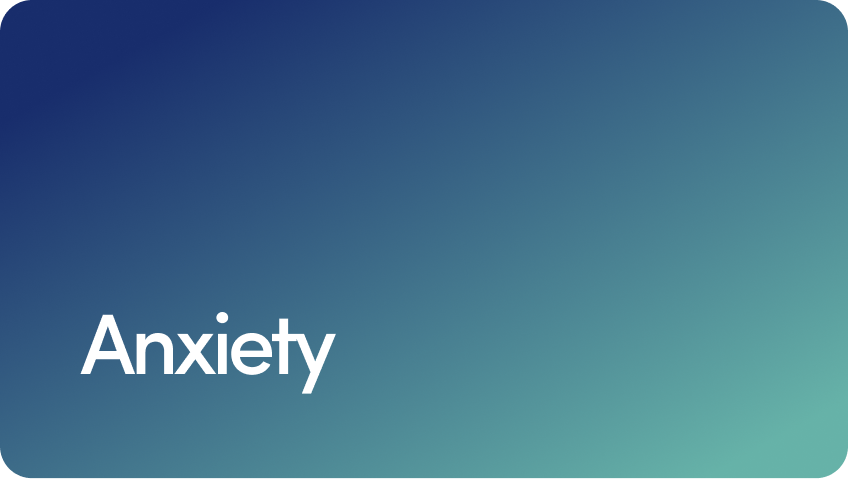 Anxiety
Anxiety
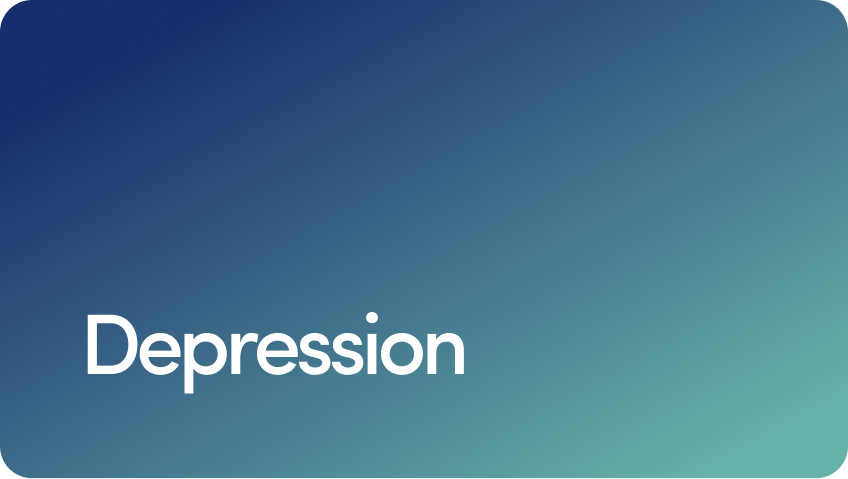 Depression
Depression
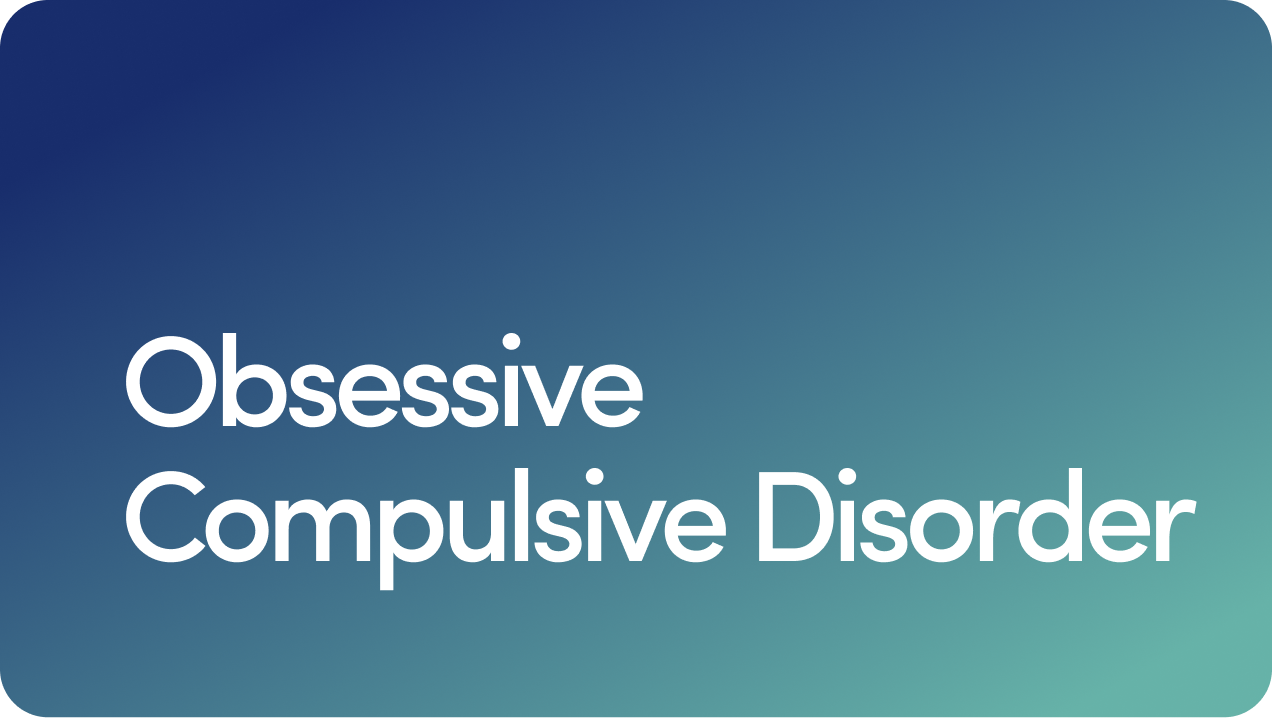 OCD
OCD
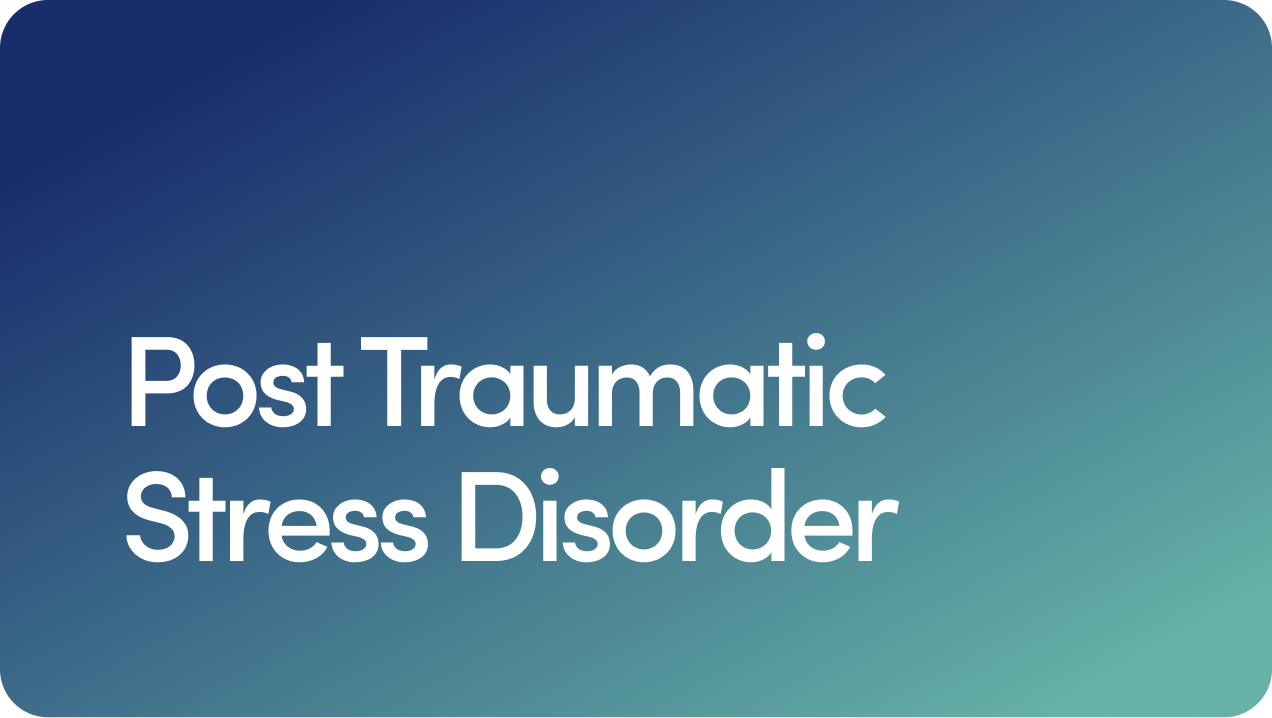 PTSD
PTSD
 Bipolar Disorder
Bipolar Disorder
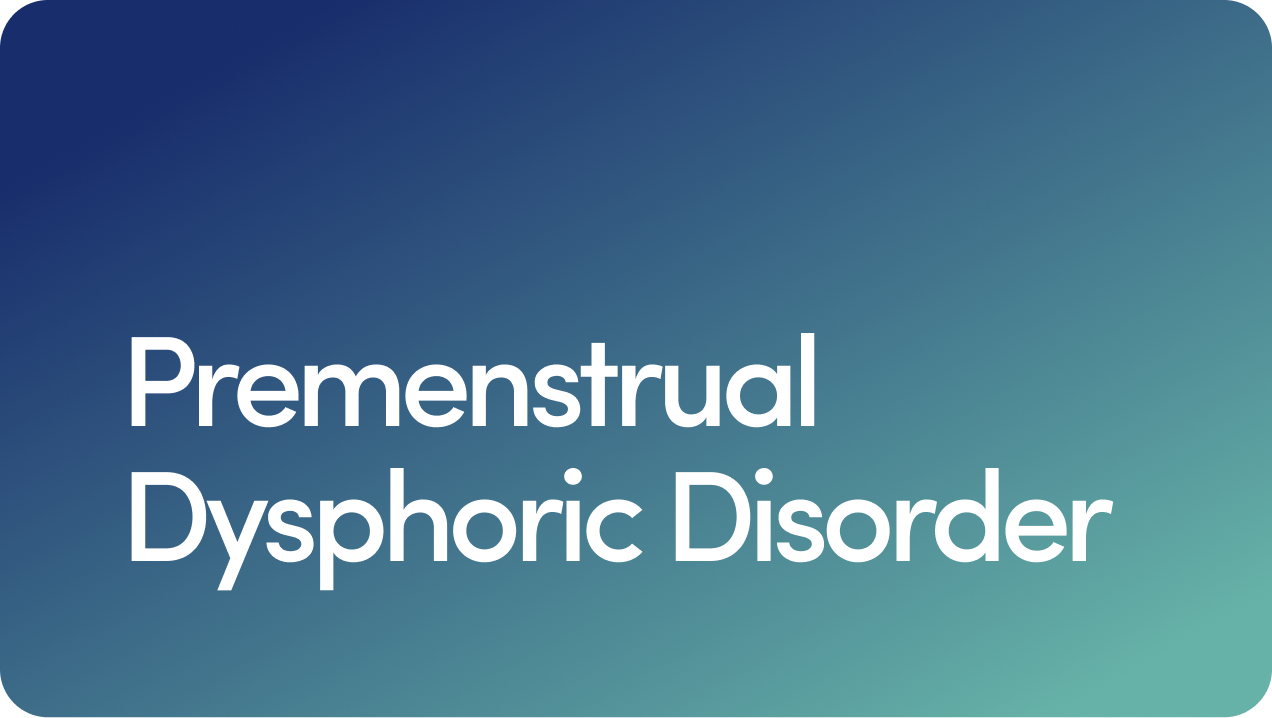 Premenstrual Dysphoric Disorder
Premenstrual Dysphoric Disorder